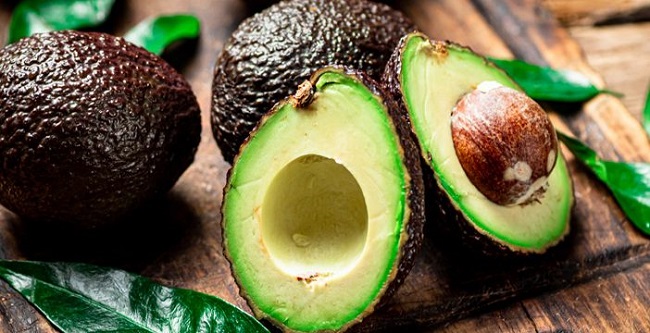Is avocado good for diabetics? Avocado is a distinctive superfood that has a green or blackish outer skin and a creamy green interior. Its flesh is smooth and buttery, with a taste and texture that remind you of a ripe banana. Avocados are packed with minerals, vitamins, and antioxidants, making them highly regarded for their fat content. This makes them an excellent choice for people with diabetes, whether they have type 1 or type 2.
Belonging to the berry family, avocados have a pear shape. They come in various colors, ranging from yellowish green to maroon or purple. The soft flesh has a green color, while the harder part of the fruit shares the same shade. With its consistency like butter and delicate nutty flavor, it offers a texture similar to that of a firm, ripe banana.
This article explores whether avocados are safe for individuals with diabetes by examining both the benefits and risks associated with consuming this fruit.
Is avocado safe for diabetics?

When we eat foods high in carbohydrates, they get converted into glucose during digestion, which leads to an increase in blood sugar levels. However, avocados have an index of 15, which makes them suitable for people with diabetes. Avocado contains an amount of fat called monounsaturated fats (MUFA), which can help in lowering harmful cholesterol levels known as VLDL. However, it’s important to keep an eye on portion sizes since avocados are quite high in calories.
Avocado is also a source of fiber, which aids in slow nutrient absorption and helps regulate blood glucose levels. Moreover, its high potassium content contributes to maintaining blood pressure and supports muscle contractions. Avocados also contain folic acid, which helps levels, which can impact blood sugar regulation.
Including avocados in a balanced diet can be beneficial for managing blood sugar levels and preventing complications related to diabetes. Along with that, it’s important to ensure protein and vegetable intake and stay hydrated engage in physical activity, prioritize sufficient sleep, and effectively manage stress.
According to the USDA data, here is the nutritional breakdown of 100 grams of avocado:
The nutritional content of this food consists of 160 kilocalories of energy 73.2 grams of water, 2 grams of protein 14.7 grams of fat, 8.53 grams of carbohydrates 6.7 grams of fiber 12 milligrams of calcium, 29 milligrams of magnesium 52 milligrams of phosphorous 7 milligrams of sodium, 10 milligrams of vitamin C 7 micrograms of fluoride 81 micrograms of folate, 14.2 milligrams of choline, 146 international units (IU) of vitamin A, 271 micrograms (lutein and zeaxanthin), 2.07 grams (g) of vitamin E, and 21 mcg (micrograms) of vitamin K.
For people with diabetes or those managing their blood sugar levels closely, it is recommended to opt for foods with a glycemic index value, such as avocado, which has a glycemic index rating as low as 15.
Is avocado good for diabetics?
Regulates Blood Sugar Levels
Avocados have been found to improve the body’s sensitivity to insulin, which is especially advantageous for individuals dealing with type 2 diabetes. By enhancing the action and response to insulin in the body system, avocados play a role in maintaining blood sugar levels and contributing positively towards diabetes management efforts. Additionally, avocados have a Glycemic Index value rating of just 15; hence, they do not cause spikes or sharp increases in blood sugar levels when consumed.
Reduces Inflammation
Inflammation is commonly associated with health conditions, including diabetes, and avocados possess anti-inflammatory properties that can aid in reducing inflammation and discomfort. They also contain antioxidants, which shield tissues and organs from the detrimental impact of free radicals.
Promotes Heart Health
The significant presence of heart fats in avocados makes them beneficial for well-being. These monounsaturated and polyunsaturated fats play a role in sustaining the health of the heart and blood vessels, thereby reducing the risk of high blood pressure, heart disease, and stroke. Avocados also boast potassium content, which aids in blood vessel dilation and supports the heart. Studies support these advantages with regard to heart health.
Research has indicated that avocados contribute to managing blood pressure by promoting heart and blood vessel conditions, regulating cholesterol levels, and reducing high blood pressure. They encompass minerals like potassium and antioxidants that actively contribute to regulating blood pressure—a crucial aspect for individuals with diabetes who may also suffer from elevated blood pressure.
Facilitates Satiety
Avocados ample content combined with fiber contributes to a feeling of fullness and satiety. This can help combat food cravings while preventing overeating, ultimately aiding in stabilizing blood sugar levels. The harmonious combination of fats and fiber found in avocados is responsible for providing lasting satiation.
Boosts Immunity
Moreover, avocados serve as a source of minerals and vitamins that bolster overall health while fortifying the immune system, specifically for individuals with diabetes. Avocados are packed with minerals like iron, calcium, magnesium, phosphorus, potassium, and zinc. They also contain vitamins C, B, K, and E, which are crucial for maintaining health and reducing complications related to diabetes.
One of the benefits of avocados is their impact on gut health. With their high fiber content (10 grams per serving), avocados promote bowel movements and support the growth of beneficial gut bacteria. People with diabetes who often experience constipation may find relief by including avocados in their diet.
Managing weight is important for preventing insulin resistance and diabetes. Studies suggest that avocados can contribute to weight loss by curbing appetite and boosting metabolism. However, it’s worth noting that avocados are relatively calorie-dense; a single avocado weighing 150 grams contains around 240 calories. Therefore, it’s advisable to be mindful of portion sizes when enjoying avocado slices or spreads while keeping track of your calorie intake.
Avocados are beneficial for maintaining nerves in individuals with diabetes. They contain nutrients like vitamin B6 and antioxidants that contribute to the well-being and protection of nerves.
Furthermore, avocados play a role in safeguarding our vision by guarding against diabetic eye diseases such as diabetic retinopathy, diabetic macular edema, cataracts, and glaucoma. These conditions can have effects on the eyes due to diabetes. Avocados contain antioxidants like lutein that act as a shield for our eyesight. Additionally, they help regulate blood pressure, sugar levels, and cholesterol levels, which are factors in preventing diabetes-related eye damage.
Frequently Asked Questions:
1. Can individuals with diabetes include avocado in their diet?
People diagnosed with diabetes can safely incorporate avocado into their diet. Avocado is rich in fiber and healthy fats, making it a suitable choice for them. It falls under the category of low-glycemic index foods since it has an index value of 15. Moreover, avocados contain folic acid, which aids in reducing levels and helps maintain blood sugar levels.
2. Does avocado have a sugar content?
Avocados do not have sugar content. Avocado doesn’t have a sugar content; in fact, it can actually help lower blood sugar levels. Its packed with both fiber and fat. Avocado falls under the category of glycemic index foods, with an index of 15. Additionally, it contains folic acid, which can help reduce levels and regulate blood sugar.
3. Is it okay to eat two avocados per day?
Having more than two avocados might increase the levels in your blood, which could have negative effects. For adults, it’s generally safe to enjoy one-sized avocados every day since avocados are rich in healthy fats. However, if you have any health issues, it’s important to consult a dietitian for guidance on the amount of avocado you should include in your daily diet.
4. What are the downsides of eating avocado?
When consuming avocado, there are factors to consider. Portion control is important. Should be regularly monitored. Combining avocado with fat foods like mayo, cheese, or butter may raise fat levels in the bloodstream and have adverse effects. Individuals with liver diseases should seek advice from a nutritionist before incorporating avocado into their diet. Due to the amount of fat present, it is advisable to avoid consuming fatty foods when dealing with liver conditions.
The key takeaway
Incorporating avocados into your diabetes diet plan can be advantageous for managing blood sugar levels and the overall health of the type of diabetes you have. These versatile fruits can be included in meals such as sandwiches, salads, smoothies, and milkshakes.
While avocados are considered superfoods due to their nutrients, it’s important to note that they should not be solely relied upon for controlling diabetes and blood sugar levels. Effective management involves considering factors like intake, physical activity level, and other lifestyle choices. If avocados are not affordable for you, alternatives like nuts and seeds can also provide fat.
![Organifi Green Juice Reviews [USA] – Best Superfood Drink](https://mygreensdaily.com/wp-content/uploads/2020/04/organifi-new-featured-150x150.png)












